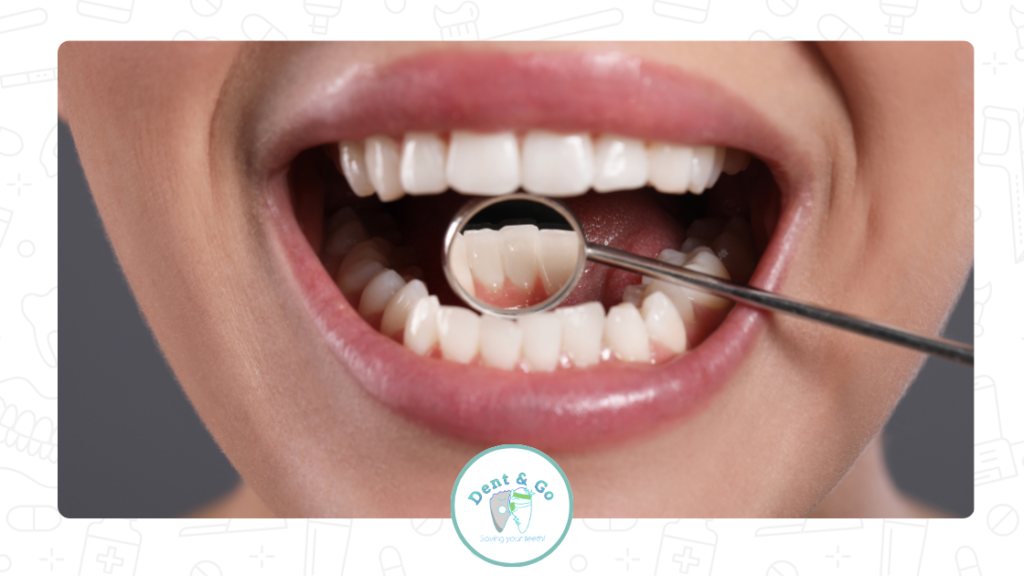Dental health is an essential aspect of overall well-being, yet it’s often overlooked until problems arise. One of the most common issues in oral health is dental plaque. This sticky, colourless film of bacteria continuously forms on your teeth. Understanding what dental plaque is, how it forms, and how to manage it is crucial for maintaining a healthy mouth. In this blog, we’ll delve into the key facts about dental plaque germs and what you need to know to keep your smile bright and healthy.
What is Dental Plaque?
Dental plaque is a biofilm or mass of bacteria that grows on surfaces within the mouth. It appears as a sticky, colourless deposit at first, but can become more visible as it thickens and can often feel fuzzy to the touch. Plaque is particularly notorious for accumulating along the gumline and in between teeth, where regular brushing may not reach effectively.
The Dangers of Dental Plaque
Dental plaque is not just an aesthetic issue; it poses several health risks if not managed properly. Here are some of the key dangers associated with dental plaque:
1. Tooth Decay
The acids produced by plaque bacteria can erode tooth enamel, leading to cavities. If left untreated, these cavities can penetrate deeper layers of the tooth, causing pain and potentially leading to more severe dental issues such as abscesses or the need for root canals.
2. Gum Disease
Plaque buildup along the gumline can cause gingivitis, the earliest stage of gum disease. Symptoms include red, swollen, and bleeding gums. If not addressed, gingivitis can progress to periodontitis, a more severe form of gum disease that can damage the soft tissue and bone supporting your teeth, potentially leading to tooth loss.
3. Bad Breath
Halitosis, or bad breath, is often a result of plaque buildup. The bacteria in plaque produce foul-smelling compounds that can contribute to persistent bad breath, which can be both socially and personally distressing.
4. Systemic Health Issues
Emerging research suggests that the bacteria from dental plaque can enter the bloodstream and contribute to systemic health problems such as heart disease, diabetes, and respiratory conditions. Maintaining good oral hygiene is, therefore, not just about preserving your teeth but also about safeguarding your overall health.
How to Prevent and Manage Dental Plaque
Preventing and managing dental plaque requires consistent and effective oral hygiene practices. Here are some essential tips:
1. Brush Regularly
Brush your teeth at least twice a day with fluoride toothpaste. Ensure you brush all surfaces of your teeth, including the front, back, and chewing surfaces. Using a toothbrush with soft bristles can help you clean more effectively without damaging your gums.
2. Floss Daily
Flossing removes plaque and food particles from between your teeth and below the gumline where your toothbrush can’t reach. This practice is crucial for preventing gum disease and cavities in those hard-to-reach areas. To make flossing easier and more effective, consider using Dent & Go Flossits. This product offers an easy-to-use solution for removing bacteria and plaque while also promoting gum health. With Dent & Go Flossits, you can ensure that your teeth and gums remain healthy and free from harmful buildup.
3. Use Mouthwash
Antimicrobial mouthwashes can help reduce the bacterial load in your mouth, thus minimising plaque formation. Mouthwash can also help reduce bad breath and keep your mouth feeling fresh.
4. Regular Dental Check-ups
Visit your dentist regularly for professional cleanings and check-ups. Professional cleanings can remove tartar that has formed and ensure that any potential issues are caught early.
5. Healthy Diet
Limit your intake of sugary and starchy foods that contribute to plaque formation. A balanced diet rich in fruits, vegetables, and whole grains can support overall dental health.
Dental plaque germs are a common but manageable part of oral health. By understanding what plaque is, the dangers it poses, and how to effectively prevent and manage it, you can maintain a healthier mouth and a brighter smile. Consistent oral hygiene practices, combined with regular dental visits, are your best defence against the negative impacts of dental plaque. Remember, a healthy mouth is a gateway to a healthy body, so take the necessary steps to keep your oral hygiene in check.

